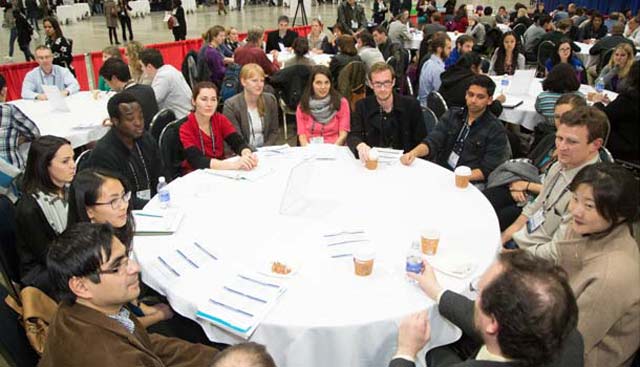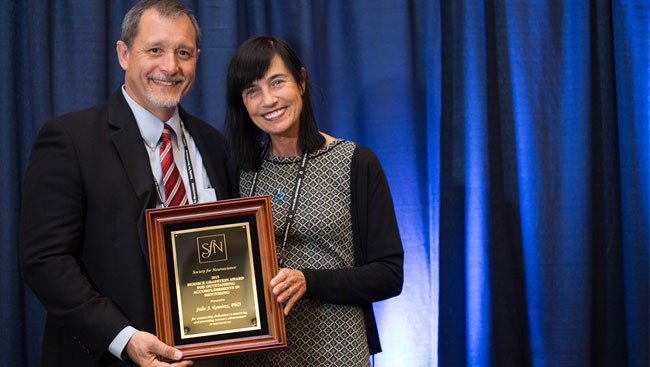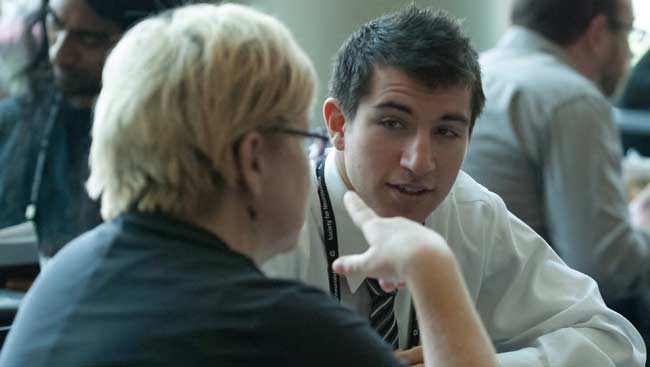Five Ways Mentors Can Support Grad Students
- Source: University of Michigan Rackham Graduate School
- Featured in:
- Best Practices for Mentoring Relationships

The mentor’s responsibilities extend well beyond helping students learn what the research and writing components of graduate school entail. First and foremost, mentors introduce students to the culture of the discipline, clarifying and reinforcing — principally by example — what’s expected of a professional scholar.
These are the basic responsibilities for mentors to support graduate students who seek their guidance.
Model professional responsibility. It is crucial that the mentor consciously act with integrity in every aspect of his or her work as teacher, researcher, and author. Students must see that their mentors recognize and avoid conflicts of interest, collect and use data responsibly, fairly award authorship credit, cite source materials appropriately, use research funds ethically, and treat animal or human research subjects properly. This list is not meant to be exhaustive. Never compromising the standards that bestow validity on the discipline is essential to the profession.
Demystify graduate school. Many aspects of graduate education are vague, new students often don’t know what questions to ask or what certain terminology means. You can help by clarifying your program’s expectations for lab work, coursework, comprehensive exams, research topics, and teaching. For each stage of the students’ programs, discuss the prevailing norms and criteria used to define quality performance.
Encourage effective time management. Work with students on developing schedules and meeting benchmarks. Share techniques and practices that have been useful for others but don’t insist there is only one way. Rather, help them blaze their own trail and devise a plan that keeps them on it. For many students, the shift from the highly structured nature of undergraduate education to the self-direction expected in graduate school presents a significant challenge.
Oversee professional development. Activities that have become second nature to you need to be made explicit to students, such as faculty governance and service, directing a lab, procuring grants, managing budgets, and explaining your research to anyone outside your discipline. Mentors help their students become full-fledged members of a profession and not just researchers.
Assist with finding other mentors. One mentor can’t provide all the guidance and support that every student needs. Introduce students to faculty, emeriti, alumni, staff, and other graduate students who have complementary interests. Effective mentoring is a community effort.
Adapted from University of Michigan Rackham Graduate School. Original source: How to Mentor Graduate Students: A Guide for Faculty.
*Learn more about SfN’s Neuroscience Scholars Program (NSP), which offers participants unparalleled access to networking, mentoring, and professional development opportunities.




.png?h=1763&w=3125&la=en&hash=B2439C2768576BED6405672E5CD5CF8CB1AA375F)




